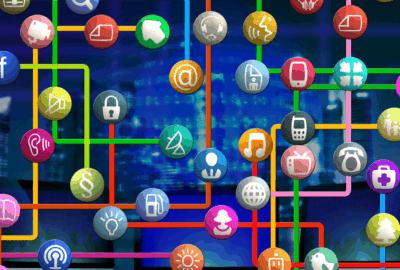 In our post Why Mobile Access Means a Better Customer Support Service? we pointed out the advantages of using mobile tools for managing customer service. This time, we focus on the competitive advantages of counting on automated solutions for app development; so to offer best customer services experiences for your internal and external customers.
In our post Why Mobile Access Means a Better Customer Support Service? we pointed out the advantages of using mobile tools for managing customer service. This time, we focus on the competitive advantages of counting on automated solutions for app development; so to offer best customer services experiences for your internal and external customers.
Why investing in automated tools for app development?
This is the first question that pops up when considering the app development as a strategy to keep pace with the latest trends in Service Management. We mean, why using tools for app development if there are plenty options, ready to use? What are the minimum technical parameters to incorporate them to our service catalog? What are the best platforms for app development? And last but not least, how much does it cost? Let’s move to answers.
 Type of Applications
Type of Applications
Then, if you decide to join the club of the most successful companies by creating your own applications; then the first thing you need to know is what are the different types of available applications:
Proprietary Applications
Operationally, proprietary applications are made with a single premise on mind: Source codes are private. In other words, only the scrum developers access to codes, and they do it under strict and controlled ambiences. Thus, the end users pay for guaranteed licenses and additionally -and only depending on the conditions of the contracts; they will also have granted access to updates and other miscellaneous services.
Native Applications
Following in this group, we found those applications that are indissoluble from their original operating system, and it only works under that unique atmosphere. They are easy to create and market, and offer a complete user experience.
 Hybrid Applications
Hybrid Applications
As its name suggests, hybrid applications are a combination of both, proprietary and native applications. This means that you can develop proprietary applications from a native operating system. This strategy allows you commercialize your apps directly from the App Store, as they will count the necessary permissions to do so. Of course, you will have to check out whether this advantage aligns with your business goals and strategic planning.
To help you weigh your choices, we leave you here this:
Proprietary Applications vs Native Applications vs Hybrid Applications

This chart is both, a comparative analysis and a useful key to answering questions about technical, practical and operational feasibility. However, let’s check them one by one:
What are the minimum technical parameters to incorporate them to our service catalog?
Technical aspects to develop service management-oriented applications vary depending on the needs of each company. However, we list here some basic aspects of app development:
- Battery Consumption
- Using system tools (sensors, GPS, screen rotation, etc.)
- Types of network connection (3G, 4G, Wi-Fi, hybrid).
- Interface and keyboard/mouse/touchscreen interaction.
- Variety of devices.
- Life cycle of the application (upgrades, EOL, etc.)
- Use and utility.
- Responsive design.
- Compliance with SLAs and certifications
- Security
- Consider screen varieties (PC, smart, mobile TV and tablets)
- Commercial exploitation, if applicable
 What are the most recommended platforms for app development?
What are the most recommended platforms for app development?
At this point, we get into the sphere of subjectivity. Some developers prefer to use iOS, other, Android, and there are those who go for Windows, Linux, Unix, just to name a few. Others, however, prefer to have everything at once and even to swap:
- Multi-platform design based on HTML5 and specific components for each device.
- Hybrid Apps, with native design and shared navigation.
- Native apps for each platform.
- Design for iPad/Tablets by padding, or by specific design.
How much does it cost app development for my business?
As a good businessman and entrepreneur, you’re probably familiar with price ranges. For sure, you already know that there are even companies whose business is commercializing app development for businesses. And what if we offer you a mobile-first solution that gives you all the capabilities you need to boost your company’s Service Management?
 EasyVista is a complete Mobile-first experience thought to built that necessary bridge between service delivery and mobility. Agnostic driven to objectives, user-centered and service-oriented; EasyVista helps your team to create applications that enhance the service experience while reducing associated costs for app development.
EasyVista is a complete Mobile-first experience thought to built that necessary bridge between service delivery and mobility. Agnostic driven to objectives, user-centered and service-oriented; EasyVista helps your team to create applications that enhance the service experience while reducing associated costs for app development.
Send us your details here, and one of our agents will contact you to discuss your needs. What are you expecting to add app development to your Service Management catalog?



